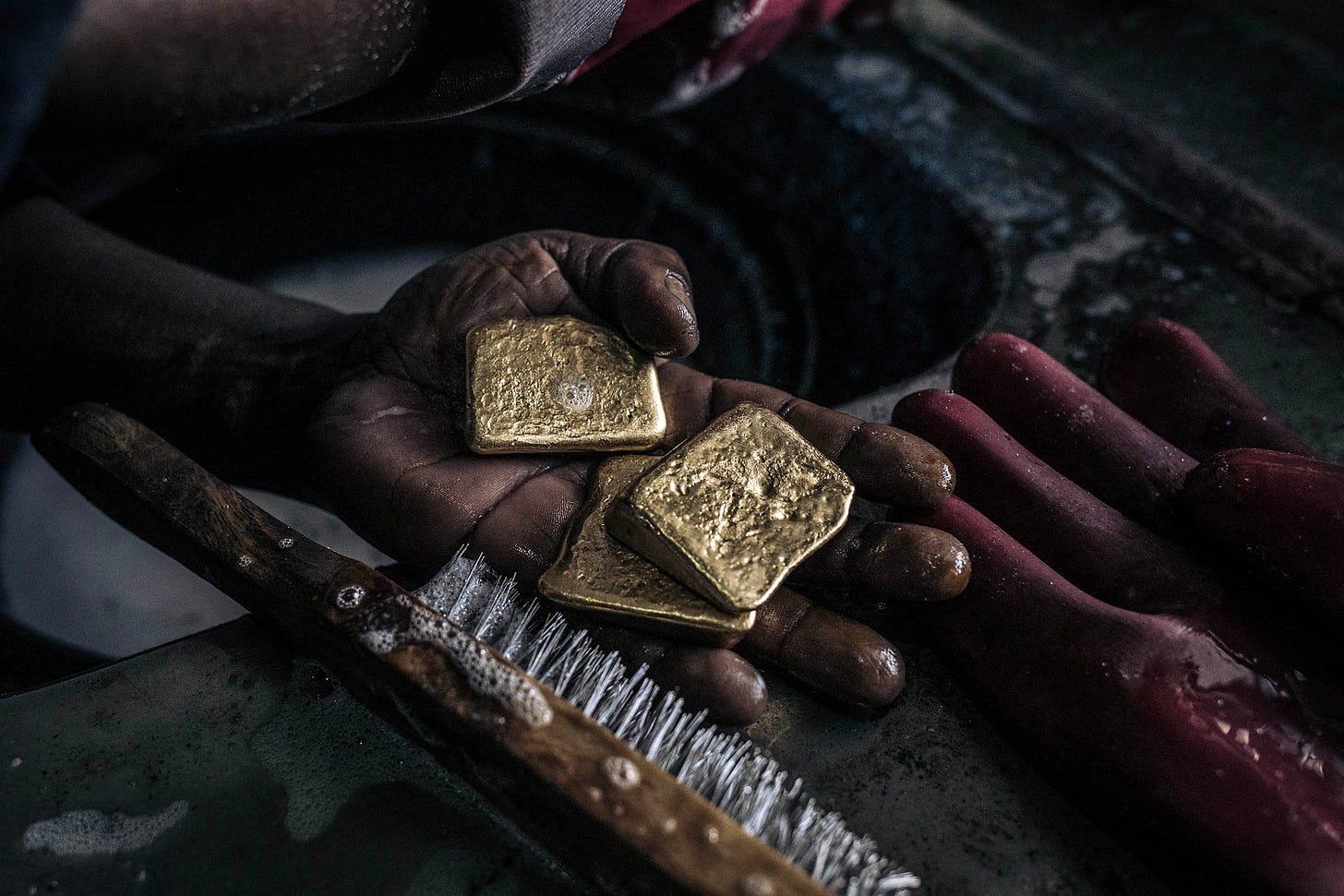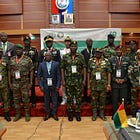The Sahel juntas are taking on foreign mining companies – and winning
The price of gold is through the roof, so miners and major players are only too happy to eat the risk.
Duncan Money
People will do strange and desperate things for gold, and its allure is only growing stronger. Five years ago, an ounce of gold (roughly 31 grams) was worth about $1,550. That same ounce is worth over $3,000 today. You could easily hold $10,000-worth in the palm of your hand.
To carry $245-million worth of gold, you would need at least two helicopters. We know this because that is how many helicopters government soldiers in Mali used to seize about three tonnes of gold from the Loulo-Gounkoto mine, which is owned by Canada’s Barrick Gold, in January. The government claims Barrick owes them hundreds of millions of dollars in unpaid taxes.
This is part of a broader pattern: pressed for cash, military rulers in the Sahel have turned to more robust approaches to negotiations with the international mining companies that dominate their economies.
In 2023, the Burkina Faso government seized 200kg of gold mined by another Canadian company, Endeavour Mining, for “public necessity”.
Last year it nationalised two gold mines from the same company, paying them $80-million in compensation. The company had previously agreed to sell the mines to another company for $300-million.
Last November, the Malian government invited the chief executive of Resolute Mining, an Australian firm, to a meeting in the capital Bamako to resolve a tax dispute. He was arrested immediately after the meeting, with Mali demanding the company pay a $160-million tax bill. After its boss had spent 10 days enjoying the hospitality of Mali’s military rulers, the company paid up in full.
An innovative kind of extortion – and it appears to work.
Previously, mining companies would complain if a government so much as increased royalty taxes by 2%. Not in this new operating environment.
Back in 2013, Barrick Gold’s chief executive Mark Bristow warned that he wouldn’t invest in South Africa – previously the world’s biggest gold producer – because of the “very dangerous trend” of the government aiming to increase revenue from the mining sector. Instead, his company invested about $10-billion in Mali.
Before seizing Barrick’s gold stocks in Loulo-Gounkoto, Mali had issued an arrest warrant for Bristow and imprisoned four company employees on terrorism and money laundering charges. Barrick has now agreed to pay the government $438-million to settle the dispute over tax.
None of this has discouraged gold mining in the region. None of these companies are pulling out. Some, like Canada’s B2BGold, have even increased their investment.
When gold prices are high, companies are willing to endure a lot.
The house always wins
Gold is not as rare as people think. Many countries have at least some gold, and 15 African countries currently mine it. Why a particular place becomes a major gold producer at a particular time is therefore not solely about geology.
The Sahel’s gold deposits have been known about and mined for a very long time. The region was the centre of a thriving gold trade from the 7th to the 15th centuries. In modern times, however, it was not until the liberalisation of the mining sector in the late 2000s that the region became a major producer.
Under the liberalising policies, mining companies got a sweet deal in the form of wide-ranging tax exemptions. Highly profitable mining operations began even as the countries themselves fell apart amid insurgencies and coups. Mali and Burkina Faso are now the second and fourth largest gold producers in Africa.
The rush into the Sahel belied a common claim mining companies make: that to invest, they need things like political stability, transparent regulations and clear property rights. None of those things applied to the Sahel states. They got billions of dollars of mining investment anyway.
The companies that made these investments knew the risks, and took the gamble. Even with the gold seizures and the hostage-taking, it may yet pay off.
In any event, being taken hostage by a military junta is not the worst thing that can happen in the Sahel’s gold industry. In late January, 13 artisanal miners – including three children – drowned at a mine in southwest Mali after a reservoir collapsed.
People – the desperately hungry and the desperately capitalist – will do desperate things for gold at $3,000 an ounce.






This is encouraging for any other export dependent country. I never thought the Malian government would be able to make this look so easy!